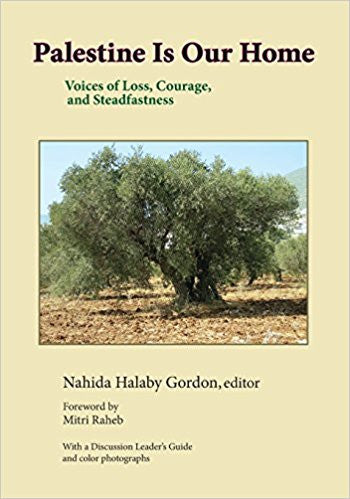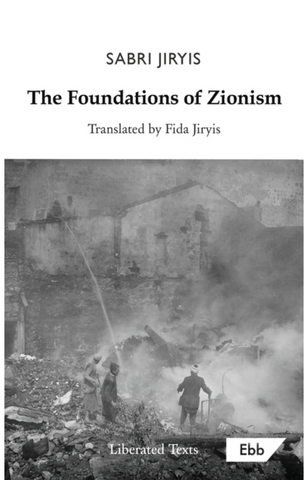Palestine Is Our Home: Voices of Loss, Courage, and Steadfastness by Nahida Halaby Gordon
$ 12.00 $ 14.95
Within these pages are the memories of Palestinians - housewives, pastors, physicians, prisoners, professors, refugees, researchers, students, teachers, and university administrators living either in Palestine, refugee camps, or exile - who have suffered loss and yet have kept their identity as Palestinians and through perseverance have kept their culture vibrant and alive. It is hoped that in meeting these people, the reader will understand the suffering and loss of Palestinians; see their longing for freedom and peace; and join in supporting their struggle for justice.
Before the creation of Israel, Palestine was a multicultural society that accepted religious refugees. In one of the narratives, the reader will meet an Armenian-Palestinian-American, whose family survived the Armenian genocide. They came to Palestine to seek refuge with a wish to live, raise their families, and contribute to the culture of their new home. They embraced the culture, learned the language, and most importantly, contributed to the rich diversity of Palestinian society.
At the beginning of the twentieth century, there was a small Jewish presence in Palestine. Jewish Palestinians spoke Arabic, lived peacefully on the land with Christian and Muslim Palestinians, and enjoyed life in Palestine, as did their Christian and Muslim neighbors. This coexistence changed with the mass immigration of Jewish refugees, primarily from Europe to Palestine, facilitated by Great Britain, which occupied Palestine after World War I. The newly arrived immigrant Jews, rather than integrating into the existing Palestinian society, came instead with a leadership that intended to displace Christian and Muslim Palestinians. They initially purchased land, but when this land was not sufficient for their purposes, they took the land of Palestine from a majority of its inhabitants by a relentless campaign of terror and expulsion that continues unabated to this day. This campaign created an ever-growing refugee population that mostly lives in ghettos throughout historic Palestine, in refugee camps in its immediate surroundings, or in the diaspora.
The continuing dispossession of the Palestinians and the violation of their human rights, and the right to political self-determination, is a blight on the collective international community. A major obstacle to restitution of justice for the Palestinian people is the ongoing and unconditional support of Israel by Western nations, especially the United States, which allow Israel to act with impunity.
In the words of Dr. Hanan Ashrawi, founder and chairman of the Palestinian Initiative for the Promotion of Global Dialogue and Democracy, "The very intimacy of these revelations (the narratives), their searing honesty, and their unassuming humanity compel the reader to engage in the challenge of awareness through identification, and to acquire that uncomfortable, yet essential, knowledge that has hitherto been denied or excluded or distorted. The simple truth, often the most complex reality to convey, is laid bare in Palestine is Our Home for all those who want to shed the complacency of ignorance in favor of the responsibility of knowledge."
Palestine Is Our Home presents brief contemporary history of Palestine, short essays, first hand testimonies, and chapters on the liberation art of Palestine and on the origins of the traditional Palestinian costume. Four tables and sixty-one color and gray scale images - maps, photographs including those of works of art, traditional costumes, and embroidery - serve to illustrate the narratives and chapters of the book. Finally, a leader's guide is provided, which when used in conjunction with the questions for reflection found at the end of each section of the book, serves to facilitate the use of the book by discussion groups.
Year: 2016






Share this item: